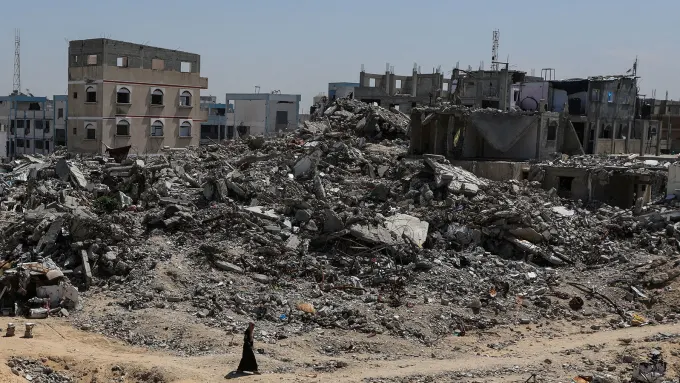
Aid Workers Killed In Gaza
As the Israeli blockade of Gaza approaches its one-month mark, the humanitarian crisis in the enclave has intensified, with aid workers increasingly becoming casualties of the ongoing conflict. Reports from various organizations indicate a troubling rise in the number of aid personnel killed or missing, exacerbating the already dire situation for Gaza’s 2.3 million residents.
Escalating Casualties Among Aid Workers
The United Nations Relief and Works Agency for Palestine Refugees (UNRWA) has reported the deaths of eight staff members in Gaza over the past week, bringing the total number of UN personnel killed since October 2023 to 289. These individuals, including teachers, doctors, and nurses, were dedicated to serving vulnerable populations amidst relentless hostilities.
Similarly, the Palestine Red Crescent Society (PRCS) has raised alarms over the disappearance of nine emergency medical technicians (EMTs) in the Tel Sultan area of Rafah. The EMTs went missing after reportedly being besieged and targeted by Israeli forces. Efforts to locate them have been hindered by ongoing military operations and restricted access to the area.
Targeting of Humanitarian Missions
In a separate incident, Israeli strikes near a community kitchen in Gaza resulted in the death of a World Central Kitchen (WCK) volunteer and injuries to six others as meals were being distributed. This tragedy underscores the perils faced by humanitarian organizations striving to provide essential aid under increasingly hazardous conditions.
The dangers are not confined to international aid organizations. Local groups have also suffered significant losses. Oxfam reported the deaths of two of its partners, Dr. Ahmad Al-Najar and midwife Laila Jneid, killed by Israeli airstrikes in Jabalia, northern Gaza. Oxfam condemned the attack, stating, “Attacking aid workers is a war crime,” and renewed calls for an immediate ceasefire.
Humanitarian Operations Under Siege
The resumption of Israeli military operations on March 18, following the collapse of a temporary ceasefire, has severely disrupted humanitarian efforts. Philippe Lazzarini, UNRWA’s Commissioner-General, highlighted the cessation of aid deliveries, noting that no humanitarian aid has entered Gaza for more than three weeks. Before the ceasefire’s collapse, between 500 and 600 aid trucks were entering the strip daily. The blockade has left hundreds of thousands at risk of severe hunger and malnutrition.
The blockade’s impact extends beyond food shortages. The health system is on the brink of collapse, with 90 hospitals and primary health care centers non-functional. UNRWA continues to provide health services across 10 primary health centers and up to 100 mobile medical points, but the overwhelming demand far exceeds the available resources.
International Response and Calls for Accountability
The targeting of aid workers has drawn international condemnation. The United Nations has announced a temporary reduction of its staff in Gaza after an Israeli tank strike hit a UN compound, killing a Bulgarian employee and injuring five others. Approximately one-third of the 100 international staffers will be withdrawn due to increased danger.
U.S. Senator Bernie Sanders has announced plans to force Senate votes on resolutions to block $8.8 billion in arms sales to Israel, citing severe human rights violations in Gaza. Sanders emphasized the need to highlight the humanitarian crisis and advocate for greater protection of civilians.
The escalating violence and the targeting of aid workers in Gaza have intensified the humanitarian crisis, leaving the civilian population in dire need of assistance. The international community faces mounting pressure to intervene and ensure the protection of humanitarian personnel and the delivery of essential aid to Gaza’s beleaguered residents.
